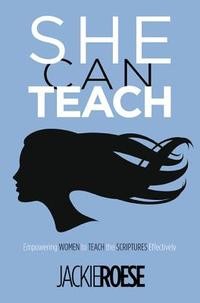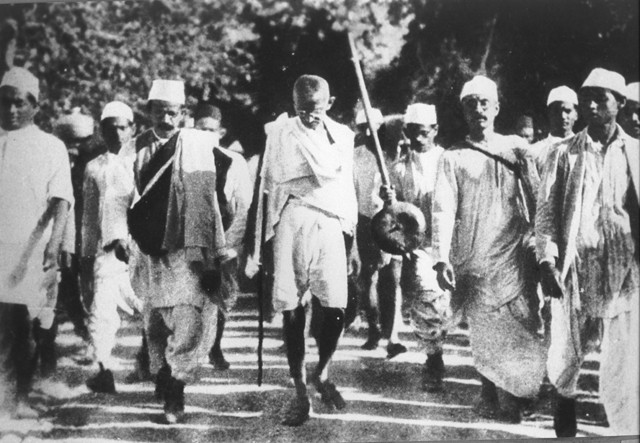She Can Teach
 Part of the reason I wanted to read this book is that the author is from my hometown. Jackie Roese was a year ahead of me in high school. I didn’t know her personally, but I knew who she was. It was a surprise to me when I learned that after high school, she became a Christian and married the son of my 6th grade Sunday school teacher.
Part of the reason I wanted to read this book is that the author is from my hometown. Jackie Roese was a year ahead of me in high school. I didn’t know her personally, but I knew who she was. It was a surprise to me when I learned that after high school, she became a Christian and married the son of my 6th grade Sunday school teacher.
She Can Teach tells some of her story, including how in the years since then she attended seminary, became a teaching pastor to women, became a writer, and earned her doctorate. I heard her speak once at a women’s breakfast at my home church, and she was dynamic and engaging. She Can Teach is, among other things, a well-told story about how God turned her life around, and at times it made me laugh out loud.
But it is also a direct, practical challenge to the notion common in evangelicalism that women should not be in church leadership or teach the Bible. Tracing a brief history of the church’s views of women, starting with Tertullian and extending into present day spokesmen like Bruce Ware, Wayne Grudem, and her peers in seminary, Roese concludes,
The message that I was receiving was the same one that women continue to receive and embrace, softer though it may be: “Woman, you are inherently less capable of handling the serious issues of theology and the Bible.” In whatever way that message is phrased, whether it’s spoken or unspoken, whether we realize it or not (and most of us don’t), the result is a perception of ourselves as “less than.” The theological ghost attacks our motivation to acquire the skills we need to handle God’s Word well.
That last sentence captures Roese’s motivation in writing. Her purpose is not to get locked into the debate about gender roles, but to encourage women to learn how to study and teach/preach the Bible, and then to equip them to do it well. Research indicates that in the evangelical tradition, which grants such primacy to the preaching of the Word, women are the least likely to acquire skills in teaching the Bible.
I liked the historical documenting of attitudes and teachings about women. This aspect of the book encourages us to think about our experiences and level of belonging in the church. It has taken me many years to realize there are limitations; it can be very hard to see “atmosphere.” In addition to the discussion of attitudes, the chapter “Know Your Audience” offered some interesting statistics about women — both in and out of the church — that really intrigued me. It’s an information-rich book that expanded my awareness in several ways.
But ultimately what I appreciated most was the book’s case for women teachers, and its second half, which offers a very thorough and specific series of “how-to” chapters in studying and preaching. I’m a teacher by trade, but it was refreshing to read the many useful pointers here — kind of like attending a conference or seminar. Roese covers everything, from identifying a main idea, constructing an outline and developing illustrations; to how to dress and use your vocal range; to the necessity of waiting on the Holy Spirit. Probably my favorite section was about building a preaching team, particularly the creative team (the “creatives,” as Roese calls them). She describes a typical meeting involving large sheets of paper taped to the walls for notes, craft and art supplies scattered over the tables for participants to work and play with, and a level of creative interaction and energy that simply sounded like a ball. I read that section to my artistic daughter, and her reaction was, “I’m in!”
If we feel “less than” or disqualified from some part of God’s kingdom, it isn’t him who’s doing it. I’ve noticed that in the Bible, God is generally much more egalitarian in his treatment of women than the culture at large. (I wrote about one example in this post. There are plenty of others.) But humans are a different story, bound as we are to traditions and, as Roese calls them, “theological ghosts.” Ranging through Scripture as well as church history and more recent scholarship, She Can Teach reminds us that women too can be gifted and called to preach, and her book’s treatment of the why and how makes for lively, informative reading.



2 Comments
hopeinbrazil
Even though I come from a denomination that allows for women preachers, I often have conflicting feelings about that. Thanks for letting me know about this title.
Janet
I’ve never especially wanted to teach/preach in church, but it makes a difference, I would think, to know you’re welcomed if you feel so called.